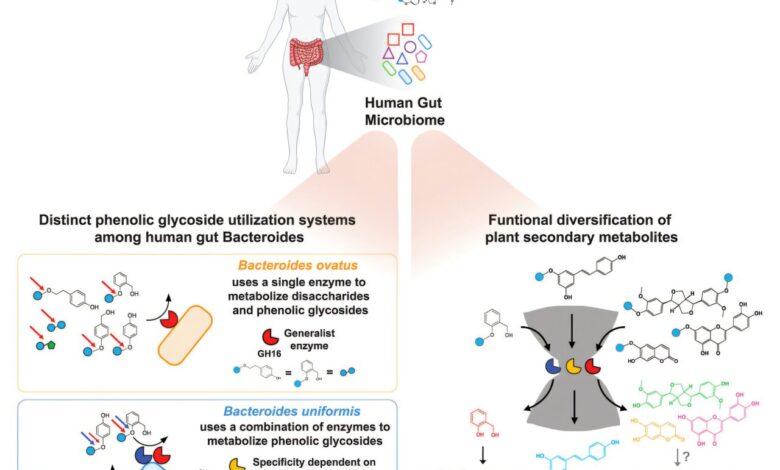Partnering diet and intestinal microbes could protect against GI disease

The relationship between diet and intestinal microbes has long been a topic of interest in the field of nutrition and health. A recent study published in the prestigious journal Cell sheds light on how harnessing intestinal microbes can enhance the benefits of plant-based foods in protecting against gastrointestinal (GI) diseases.
The study, led by Dr. Seth Rakoff-Nahoum from Boston Children’s Hospital, explores the role of intestinal bacteria in breaking down plant compounds known as phenolic glycosides. These compounds, found in a variety of plant-based foods, are known for their health benefits but the mechanisms behind their effects have remained largely unknown.
Through their research, Dr. Rakoff-Nahoum and his team discovered that different intestinal microbes possess specialized enzymes that can metabolize specific phenolic glycosides. These enzymes break down the sugar molecules in these compounds for the benefit of the microbes, while releasing small molecules that have potential health benefits for humans.
One key finding of the study is the role of these small molecules in regulating intestinal inflammation and promoting resistance to intestinal pathogens. This discovery has significant implications for conditions such as inflammatory bowel disease and Clostridioides difficile infections, which are often challenging to treat.
In their experiments on mice, the researchers found that certain small molecules released by intestinal bacteria were able to inhibit the colonization of C. difficile in the intestines. One promising molecule, resveratrol, derived from grapes and red wine, showed antibiotic properties against C. difficile in the mouse model. Another compound, salicin, found in willow bark, was able to regulate intestinal homeostasis and balance the immune response, offering potential benefits in treating inflammation.
The researchers are now looking to translate their findings into clinical development, with the hope of testing new therapeutic approaches that leverage the interaction between plant compounds, intestinal bacteria, and human health. This innovative research has the potential to lead to novel treatments for GI diseases and could pave the way for personalized nutrition strategies based on an individual’s intestinal microbiome.
Overall, this study highlights the intricate relationship between diet, intestinal microbes, and human health, pointing towards a future where we can optimize our diets to maximize the benefits of plant-based foods for our well-being. The findings from this research open up new possibilities for therapeutic interventions and hold promise for improving outcomes in patients with GI diseases.





